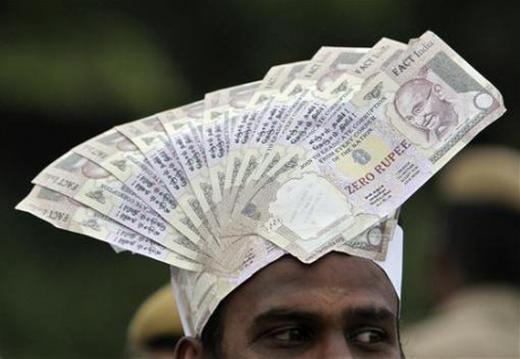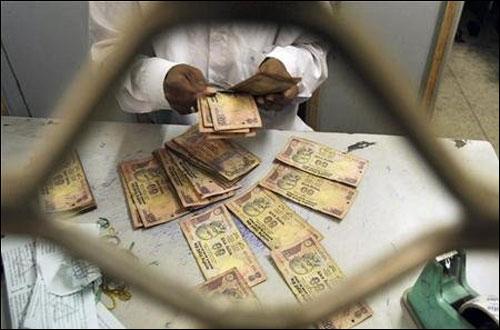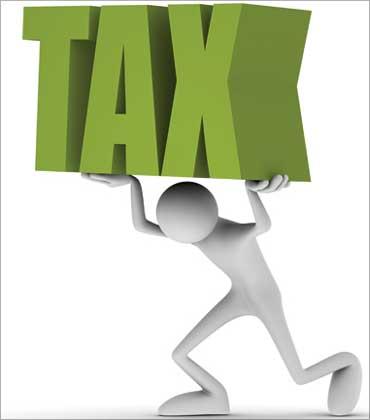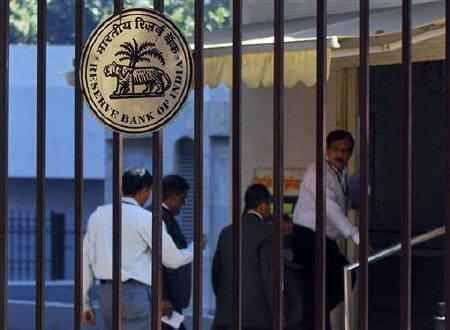Photographs: Kim Kyung Hoon/Reuters Fintotal.com
Most of the salaried employees might have received a reminder from the HR for submission of proofs of tax saving investments.
Are you worried that you have not utilised all the tax saving provisions?
Are you staring at a huge tax deduction from March salary?
If you have already made the provisions and investments, then it's no big deal for you. But in case you are one of the late movers, time has come to make fast moves.
Broadly, there are three ways toensure that you pay optimal tax; Claiming tax free income, incidental actions that bring tax benefits and finally investing/saving for tax benefits.
Let us explore them in detail.
. . .
Powered by , the no nonsense finance portal. Take a peek.
Last minute tax planning: A complete guide
Claiming tax free income: All you need to do here is submit documents to the HR and relax.
Your tax outflow will automatically get managed.
These are applicable for salary components that are taxfree in nature.
Here is the list of items:
- In case you live in a rented apartment and want to make your HRA tax free: Submit 12 month's rental receipt from owner
- For making medical allowance tax free you need to submit medical bills for the year
- To make leave travel allowance tax free you need to submit travel proofs
- For conveyance allowance to be made tax free you need to do nothing to prove. Attending work is good enough we guess!
. . .
Powered by , the no nonsense finance portal. Take a peek.
Last minute tax planning: A complete guide
Photographs: Babu Babu/Reuters
Incidental actions that bring taxbenefits
Here you get benefits for certain positive actions you take in your financial life.
Here again all you need to do is submit proofs to claim tax benefits for those actions.
Interest payment on your home loan -- this qualifies under section 24
Principal re-payment on your home loan -- this qualifies under section 80C tax rebate
Insurance premium receipts paid for the year -- this qualifies for section 80C tax rebate
Tuition fee receipt paid for your children if any -- this qualifies for section 80C tax rebate
Your side contribution to employee provident fund (no proof to be submitted as the HR already has the records) -- this qualifies for section 80C tax rebate
Mediclaim premium receipt -- this qualifies for section 80D tax rebate
Parents' mediclaim premium receipt -- this qualifies for section 80D tax rebate
Education loan statement (mentioning the interest component) -- this qualifies for section 80E tax rebate
. . .
Powered by , the no nonsense finance portal. Take a peek.
Last minute tax planning: A complete guide
Photographs: Rupak De Chowdhuri/Reuters
You must be wondering why insurance is figuring in this incidental category?
Primarily, insurance is supposed to be seen in that manner.
We discourage buying insurancepolicies as a tax saving tool.
Same with mediclaim.
Investing/saving for tax benefits
Here is where you need to plan and act for managing your tax outgo. Broadly here you deal with the provisions of Sec 80C/Sec 80 CCC, 80G and 80 CCG.
You are primarily expected to invest in any of the products listed in these sectionsand in return you get the benefit of paying lesser tax.
But there is an upper limit to this.
For both section 80C and section 80CCC the upper limit collectively is Rs 1,00,000.
. . .
Powered by , the no nonsense finance portal. Take a peek.
Last minute tax planning: A complete guide
Photographs: Jayanta Dey/Reuters
Section 80C/ 80CCC:
In case the total amount claimed under 80C from the items that are listed in the above incidental category is totaling to Rs 1,00,000 then just chill.
You have nothing much to do under these sections.
But if total is less than Rs 1,00,000 then you can make some investments to claim tax benefits.
The products that qualify for the same are as follows:
- Public provident fund
- Bank fixed deposits (the 5 year thing)
- Mutual fund-ELSS
- ULIPs
- National Savings Certificate (NSC)
- Pension Plan
Naturally your next question will be which product to choose. Here is our recommendation:
. . .
Powered by , the no nonsense finance portal. Take a peek.
Last minute tax planning: A complete guide
Photographs: Illustration by Uttam Ghosh/Rediff.com
On closely looking at the products you will notice that all of them are long-term in nature.
As it is along-term investment, we need to take into consideration the negative impact of inflation while deciding on the product.
Inflation robs the value of money as time passes.
What a Rs 500 note can buy today cannot buy after say 5 years.
Probably you need to have a Rs 1000 note!
Hence whenever you make investments that are long-term innature, the returns you earn necessarily should beat inflation.
Only growth assets have the power tobeat inflation in the long run.
Equities, equity mutual funds, gold and real estate have the power to beat inflation in the long run.
. . .
Powered by , the no nonsense finance portal. Take a peek.
Last minute tax planning: A complete guide
Though they are riskier by nature, in the long run it delivers thebest value. Income assets like fixed deposits, bonds, traditional investment-cum insurance policies, etc gives returns less than inflation.
Arranging the section 80C products as per the asset class:
Income assets
- Public provident fund
- Bank fixed deposits (the 5 year thing)
- National Savings Certificate (NSC)
- Growth assets
- ULIPs
- Pension Plan
- Mutual fund-ELSS
Powered by , the no nonsense finance portal. Take a peek.
Last minute tax planning: A complete guide
Photographs: Reuters
It is now quite obvious that young and middle aged people should look at growth assets only.
ELSS wins hands down over ULIPs since it has far lower costs and charges loaded onto it.
This makes it one of the best tax saving instruments available.
What is ELSS?
An equity linked savings scheme is very similar to a diversified fund -- it invests in the broad Indian equity market.
It has no stated preference for sectors or themes -- it chooses stocks based on the fund manager's research and hypotheses.
An ELSS has a three-year lock-inperiod.
Here's how to choose (therule of three):
- Avoid funds that have less than three years of track record.
- Avoid funds that have an asset base of less than Rs 300 crore (Rs 3 billion).
- You can get this figure in the fund fact-sheet (available for download at the fund's site)
- Rank all ELSS in decreasing order of three-year returns.
- Choose one of the top three. Be aware, past performance may not be repeated in future.
. . .
Powered by , the no nonsense finance portal. Take a peek.
Last minute tax planning: A complete guide
Photographs: Danish Siddiqui/Reuters
Section 80G
If you pay a donation to any recognized charity or relief fund, a part of the donation can be claimed as a tax rebate.
You need to submit the certificate of donation to HR.
A few organisations like the Prime Minister's Disaster Fund enjoy 100 per cent deduction -- which means the entire donation paid is deductible from your salary.
However, most other donations including severalreligious organizations enjoy only a 50 per cent deduction.
If you pay Rs. 1,000 to such an organisation, you can claim Rs 500 as benefit.
. . .
Powered by , the no nonsense finance portal. Take a peek.
Last minute tax planning: A complete guide
Section 80CCG
This is the newly announced rebate from the government called Rajiv Gandhi Equity Savings Scheme. Features are:
- One can invest a maximum of Rs 50,000
- Tax rebate of 50%
- Only for individuals whose annual income is less than 10 lacs
- Investing in stocks for the first time
- Investing in BSE 100, CNX 100, PSUs, certain mutual funds and ETFs (list)
- Lock in of 3 year but can trade after 1 year
There is not much clarity in term of execution and procedure. May be you can give it a miss this year or wait for few more weeks to get complete clarity.
Be aware with the current crop of tax free bonds: Firstly it has nothing to do with tax rebate of Sec80 CCF.
Section 80 CCF (Rs 20,000) has been scrapped this year and you will not get any tax rebate on infrastructure bonds like the one you got last year.
Hence do not fall for this trap.
KripanandaChidambaram manages the personal finance awareness portalhttp://www.fintotal.com/. You may contact him at info@fintotal.com.
Powered by , the no nonsense finance portal. Take a peek.











article